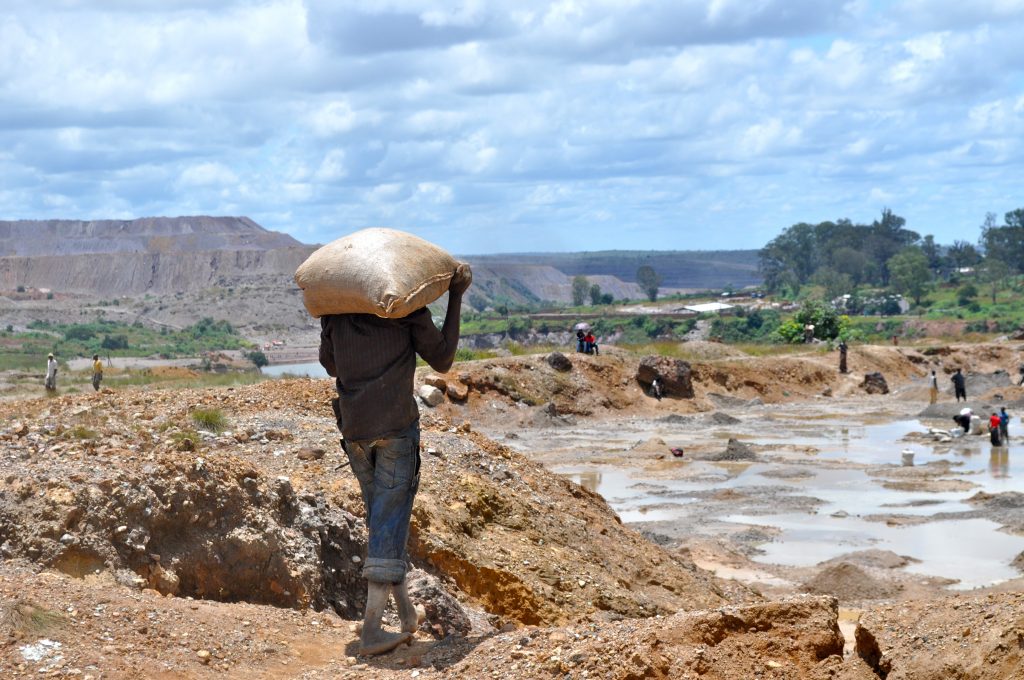
A closer look at our efforts to improve cobalt sourcing
Cobalt is an essential material used in high-performance lithium-ion batteries, used in everything from laptops and smartphones to electric and hybrid cars. As our appetite for these products continues to grow, the demand for cobalt is growing along with it.
Today, Amnesty International published a report about human rights abuses in Congolese cobalt mines. One of the takeaways from the report is that the so-called “tech giants” – including mainly the electronics and automotive industries – differ in the extent in which they’re mapping their cobalt supply chains. However, there hasn’t been much change in the conditions at the mine sites.
Instead of turning away from regions with a high risk, Fairphone’s approach has always been to work with areas where we can have the greatest impact. To support economic development and encourage responsible mining practices in the DRC and beyond, we’re partnering with a variety of initiatives to set up transparent supply chains for the essential minerals used in our phones. We believe abandoning small-scale mining can exacerbate existing problems, since it is a crucial source of income for many local communities.
Recently, we agreed to join hands with refiner Huayou Cobalt, to start setting-up a traceable supply chain with cobalt originating from a selection of artisanal and small-scale mine-sites (ASM) in the DRC and to directly work with these sites to improve working conditions.
Paving the way for better cobalt
Why do we focus on cobalt? As part of the Fairphone journey to improve mineral sourcing, cobalt has always been close to our hearts. Back in 2011, before Fairphone became a social enterprise, we took our first trip to the Democratic Republic of Congo (DRC) to visit cobalt mines and learn more about the working conditions. Following our materials scoping study, we’ve selected cobalt as one of our top 10 materials to focus on while producing our Fairphones. Our most recent cobalt research trip to the DRC took place in April this year, to see what is currently the status of the situation in the mines.
Even though cobalt is not classified as a ‘conflict mineral’, the mining conditions are often associated with severe human rights violations, including child labor. At the same time, it is currently not possible to fully substitute cobalt in electronics nor is there enough supply of recycled cobalt, which means mining will remain the basic source of supply in the near future. Actions to improve the mining sector are therefore urgent.
For Fairphone, contributing to the formalisation and improvement of the sector seems to be a more sustainable solution. Over the past six years, we’ve seen slow but steady changes in the public debate surrounding cobalt – both in terms of consumer and industry mindset, as well as a willingness to make concrete changes.
Setting up a traceable cobalt supply chain from the DRC
We are currently working on setting up a new battery supply chain for the Fairphone 2. While doing so, we specifically look for like-minded partners and have discussions about opening up the cobalt supply chain from an early stage onwards in detailing the partnership. At the same time, we’re building relationships in Congo on the ground, to see what are possible best practices that we can support and connect to our supply chain.
In this process, we’re also in conversations with Huayou Cobalt, a major global cobalt refiner, who is taking steps to directly source from a selection of cobalt mines in the DRC to be able to increase transparency and better monitor the working conditions. To move beyond the untraceable ‘black box’, they want to cut out the middleman and gain in order to have as much control as possible over where the cobalt comes from, by purchasing cobalt directly from the mines.
To support their efforts to keep making improvements, Fairphone has agreed to work together to identify a selection of artisanal mine sites to connect the cobalt that Huayou would be sourcing to the battery of the Fairphone 2. This doesn’t mean that these mines are already perfect, but they would need to meet a baseline set of criteria, including ensuring that the mines are legally registered, have systems in place to prevent child labor, and that the cobalt can be directly traced to the individual mine.
In addition, we have committed to be working together directly with selected mines to further improve health and safety and the miner’s ability to generate a fair income. The aim is to outline a clear roadmap and continuously improve the conditions at these mines.
All progress is worth celebrating
Fairphone can’t create systemic change on its own and we are pro-actively inviting other industry players to join us. There are concrete signs of commitments from other brands to partner with us in setting up this new supply chain and we will keep you updated as we go further. In addition to focusing on our own supply chain, we’ll continue to follow the progress of initiatives such as the Responsible Cobalt Initiative (RCI).
While we’re under no illusion that we can change how cobalt is mined and sourced overnight, we want to offer real solutions, and a real path to improvement, one step at a time. Because we believe that all improvements represent progress, no matter how small they might be.
Share this post
The post you are currently reading is an AMP HTML document; an optimized version for mobile usage to increase loading speed and decrease data usage. To see our full website you can visit our own mobile version of this post.